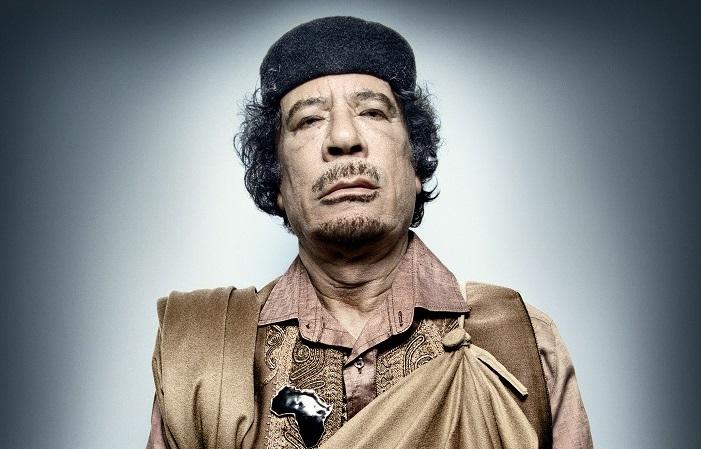Three years ago this month, the first protests against the brutal dictatorship of Colonel Muammar Gaddafi broke out. On October 20 2011, the tyrant was finally caught, and mobile phone footage of his bloody and abused last minutes went viral. His regime, in power since 1969, was no more. For a while, the streets of Tripoli were filled with optimism and hope. All thought peace and change had come.
Those were heady days, which already seem remote: Libya has again fallen into a new, different kind of despair. Christopher Olgiati’s remarkable Storyville film, Mad Dog: Gaddafi’s Secret World, made painfully clear that the terrible legacy of this charismatic, paradoxical leader who moved progressively towards megalomaniac lunacy will stain his country for decades to come.
So varied was the story that Olgiati seemed to acknowledge that his film could not help being a bit of a a picaresque journey, which took us, variously, to Cuba, the US, the Pacific, Brazil, Uganda and South Africa. He managed to get some figures, who you might have thought would not be so keen on remembering, to open up. There were those who were part of the official regime (and those who serviced it, like bodyguards) who survived, as well as the relations of those who didn’t, like the widow of a foreign minister (abducted and killed, his corpse was kept in a freezer in Gaddafi’s palace for close on 25 years, the leader periodically visiting to inspect his victim).
Early on in the film a State Department official, stating that “he compromised us”, caught the essence of the lure that Libya’s fantastic oil wealth – amounting to around $1 trillion over the duration of Gaddafi’s reign – facilitated. Tracked down to Cuba and filmed in secret, there was Frank Terpil, one of those it had benefitted, now a fugitive from US justice: he’d been a pro in the international assassination business, though even he seemed stumped by Gaddafi’s request to have a victim’s head delivered in a cooler bag.
You felt that the film’s reserves of the terrible could be extended almost indefinitely
One of the strangest encounters was with German rocket scientist Lutz Kayser and his wife, who’d entered Gaddafi’s entourage when the former was developing secret weaponry in the early Eighties. Susi, the wife, recalled a flirtatious atmosphere around Gaddafi, whom she nicknamed Alexander the Great – quite fittingly, given his ambitions for empire, both Arab and African. The two of them enjoyed horses in the Sahara, and Susi remembered how he “smelled nice”. Olgiati tracked them down to a private island in the Pacific – where he was given a warm welcome – so clearly these two hadn’t done badly out of their Libyan encounters. Which was something you could hardly say of the great majority of the others, like the girls (and boys) selected direct from schools to become the sexual trophies of the voracious Gaddafi.
In the end it all became a bit bewildering. At almost 90 minutes, you felt that the film’s reserves of the terrible could be extended almost indefinitely. Just when you thought it couldn’t get any darkly crazier, something more came along, like Tripoli described as a “terrorist Woodstock”, so numerous were the potential wreakers of havoc gathered there.
Mad Dog… was a film about the manifestations of totalitarian tyranny, rather than an investigation as to how it actually came about, with almost nothing on the early years when Gaddafi came to power, or on how his system came to be moulded. There was nothing edifying at all in this hideous story, and it made us feel almost uncomfortable for the fact that we couldn’t but relish some of its bizarre details. The politicians of the West hardly came off well, either. That footage of Tony Blair embracing Gaddafi, at the start of the nominal attempt to bring him back into the international community that was actually just a greasing of new oil contracts, must surely rank among the more quease-making.















Add comment